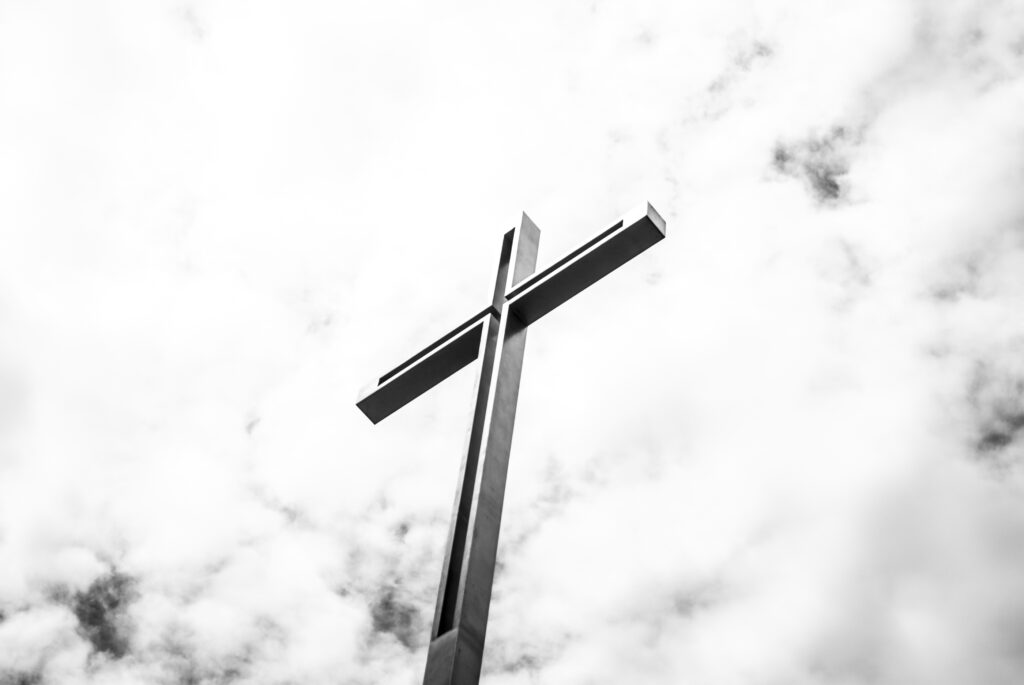Reintroducing George Smeaton and Abraham Kuyper
Writing on different subjects, in different language, but at roughly the same period of time, George Smeaton and Abraham Kuyper used synonymous language to describe Christ’s reign over the earth. In our first post, we introduced them; today we will compare and combine their statements to give a more full-orbed understanding of Christ’s universal dominion. But before doing that, let me supply their quotes again.
First, in 1871 in Christ’s Doctrine of the Atonement, Smeaton wrote concerning John 12:31 and Christ’s universal reign,
On the contrary, this testimony shows that every foot of ground in the world belongs to Christ, that His followers can be loyal to Him in every position, and that in every country and corner where they may placed they have to act their part for their Lord. The world is judicially awarded to Christ as its owner and Lord (p. 300).
Ten years later, Kuyper in a speech concerning “sphere sovereignty,” Kuyper make the famous statement,
There is not a square inch in the whole domain of our human existence over which Christ, who is Sovereign over all, does not cry: “Mine!“
Clearly, the resonance between Kuyper and Smeaton is unmistakable, but there are a number of differences in context and nuance that make it worthwhile to take up both statements as we consider Christ’s universal dominion. Let’s consider three that develop this truth.
Feet and Inches: Smeaton and Kuyper on the Universal Reign of Christ
First, Christ Rules Over Satan and Scholars. In Smeaton, Christ’s rule over the earth is contrasted with that of Satan. While Satan stole possession of the earth from Adam and Eve, and ruled as the god of this age for generations; Jesus Christ came and dethroned the serpent of old. Thus, while he still flails, Jesus is the one resting on the throne and delegating his Spirit and his Church to have dominion over the whole wide earth.
At the same time, one of the areas in which this dominion ought to occur is in the academy. Kuyper, a brilliant theologian, author, educator, politician, and spokesman for a Reformed worldview, advocates the need for the disciplines of law, medicine, science and so forth to be undertaken not in disjunction from faith or from the reign of Christ, but rather in connect with him. The reason? Just as Christ reigns over Satan and in the church, so he is the creator, sustainer, and inventor of all life. Thus, to rightly understand anything in creation demands that a person sees how that individual theory, molecule, or bacteria strain relates to the whole. Only with Christ reigning on the throne can such a vision of research be conceived.
Second, Christ Rules Over Space and Studies. In Smeaton, we find biblical proof of the fact that Christ died for people from every tongue, tribe, language, and nation. At the same time, his death defeated the cosmic reign of Satan. Therefore, every square foot has now been reclaimed, officially, by Christ, and in time all creation will be re-made and re-seeded as Christ brings the New Creation. At the same time, Kuyper rightly sees Christ rightly seeds his world with thinkers and thoughts that benefit all of humanity. These come not only from Christian scientists and philosophers, they are also developed by unbelievers. Nevertheless, Christ rules over the nations and their various schools of thought in order to effect all of his purposes in the world.
One example of this would include the political theory that permitted Israel to dwell in the land of Palestine under the auspices of the Roman Empire. While not apparent to the Romans or even the Jews, God permitted the toleration of the Roman Empire to provide a way of life in Israel that facilitated the coming of Christ (cf. Gal 4:4). All the orchestrations and political machinations were at one level governed by various thinkers and philosophies, but at another level, God used them in order to effect his causes. In this way, God is sovereign over the geographic nations and the way they run. Smeaton points to the former, Kuyper more the latter.
Third, Christ Rules As Redeemer and Creator. In Smeaton’s work, he is insistent on Christ’s atoning work. Because of Christ’s death, he defeats Satan and redeems or reclaims the earth. In this way, he is functioning as a Redeemer who has authority over all the earth. For Kuyper, it seems that his sphere sovereignty is more connected with his role as creator and sustainer. While not denying the special work of redemption, in any sort of way, he emphasizes Christ the Creator.
Truth be told, both of these things are truth and should not be set against one another. Rather, they work in tandem and rightly relate Christ to all the earth. As John 17:2 mentions, Jesus has authority over all flesh, but he only gives eternal life to the ones who have been given to him (i.e. the elect).
In the end, Smeaton’s statement balances Kuyper’s statement and gives added texture and depth to the beautiful reality that Christ reigns over all things. Christ reigns over all the earth as Creator and Redeemer, as the one who has subdued Satan and who subverts scholars. He rules space and time, measurement and rhyme. He is God over all, and in the works of Smeaton and Kuyper, one can find an excellent pair who help us think through the way Christ governs his universe.
A Final Curiosity
Smeaton published his words before Kuyper proclaimed his. While it would be natural for Smeaton to assimilate Kuyper’s well known words–at least well known today–it seems more odd that Kuyper would have borrowed his most famous utterance from another. And it probably is unlikely. The contexts in which the statements occurred and the provenances from which they were written, accompanied by the difference in languages, makes it unlikely that these two statements had any organic relationship.
It is more likely the case, that the allusive echo found in their statements are simply the product of two men studying the same Scriptures, influenced by the same Spirit–coincidentally, both men produced mathom works on the Holy Spirit (Smeaton, The Doctrine of the Holy Spirit; and Kuyper, The Work of the Holy Spirit), living under the same king whose rule is seen in Edinburgh and Amsterdam.
While Smeaton measured Christ’s reign in feet and Kupyer marked his off in inches, the reality for both of them, is that Christ rightly possess all his inheritance and is reigning over it all today. This glorious truth bears repeating, and as often as we quote Kuyper, perhaps we should also cite Smeaton, who not only precedes the Dutch theologian and prime minister, but who also connects the universal reign to the cross of Christ.
Thoughts? If anyone does have any connections between Smeaton and Kuyper, I would love to know. If not, it will remain an interesting coincidence, another example that there is nothing new under the Son.




















